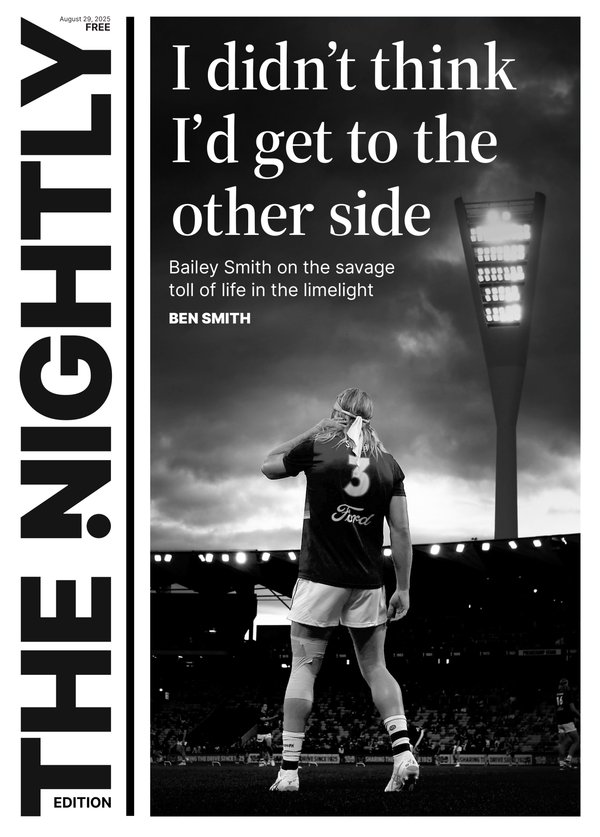Adam Hunter’s partner Latisha Yacoub opens up on West Coast Eagles star’s final moments
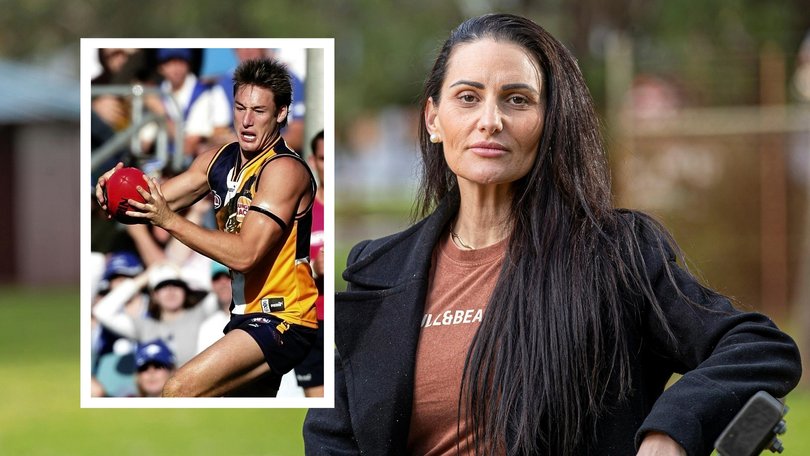
The grieving partner of Adam Hunter has detailed the West Coast star’s harrowing final moments, as a coronial inquiry pinpointed meth-induced heart failure as the cause of his death.
Latisha Yacoub administered CPR to Hunter as he lay on their bedroom floor on the night of February 4.
“I was screaming at him to keep his eyes open,” she said. “He was looking at me. He couldn’t move anything except his head.
Sign up to The Nightly's newsletters.
Get the first look at the digital newspaper, curated daily stories and breaking headlines delivered to your inbox.
By continuing you agree to our Terms and Privacy Policy.“I said ‘just don’t die on me’. That was the last time he looked at me and then he closed his eyes and I started CPR.”
The WA Coroner believes the Eagle’s drug use exacerbated his heart complications, which included cardiac hypertrophy — a thickening of the heart walls — and coronary artery disease.
Hunter’s drug use was well known but Ms Yacoub said most people underestimated how far his addiction had overtaken his life.
He blew all the money he earned while on high-paying contracts with the Eagles, had his houses repossessed and died bankrupt after selling almost all his football memorabilia to pay his dealers.
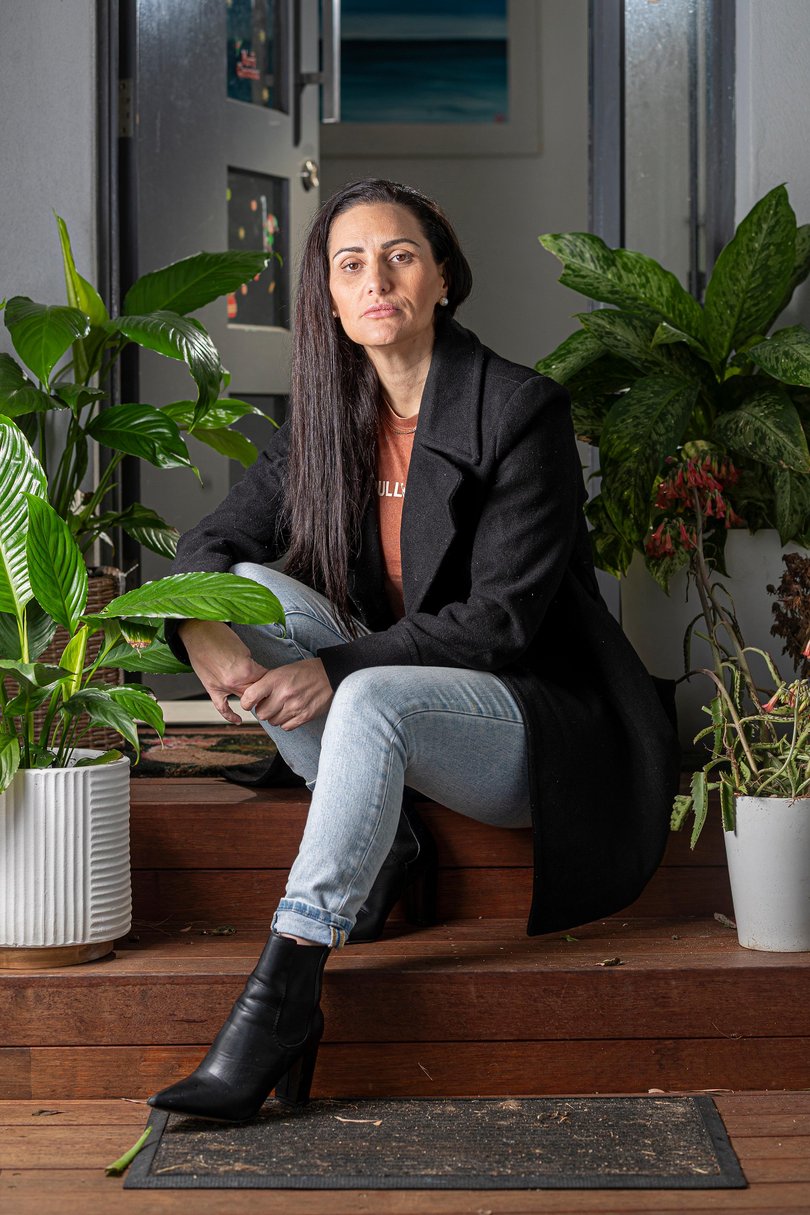
Ms Yacoub, 41, said that despite the challenges of living with an addict, she never stopped loving him.
“Besides all the s..t stuff, to me he was still amazing,” she said.
Ms Yacoub first met Hunter when she was 18 and he had just been drafted to the Eagles.
“He was just so attentive and nice,” she said. “He would do things like drop in and see me at lunchtime and call in sick for me by pretending to be my brother so we could spend the day together.
“We were both very young and it was a bit of a whirlwind. But I suspected I wasn’t the only woman in his life, which I kind of understood because West Coast players at that time were always being chased by the girls.
“I ended up finding out about someone else and we lost touch. We started seeing each other again in August 2022 and I told him then that he would never hurt me like that again.
“He kind of rolled his eyes and said ‘have you really been holding this grudge all this time?’
“I thought he had changed and when I realised he hadn’t I had already fallen in love with him again.
“I always believed he could be this image that everyone thought he was.”
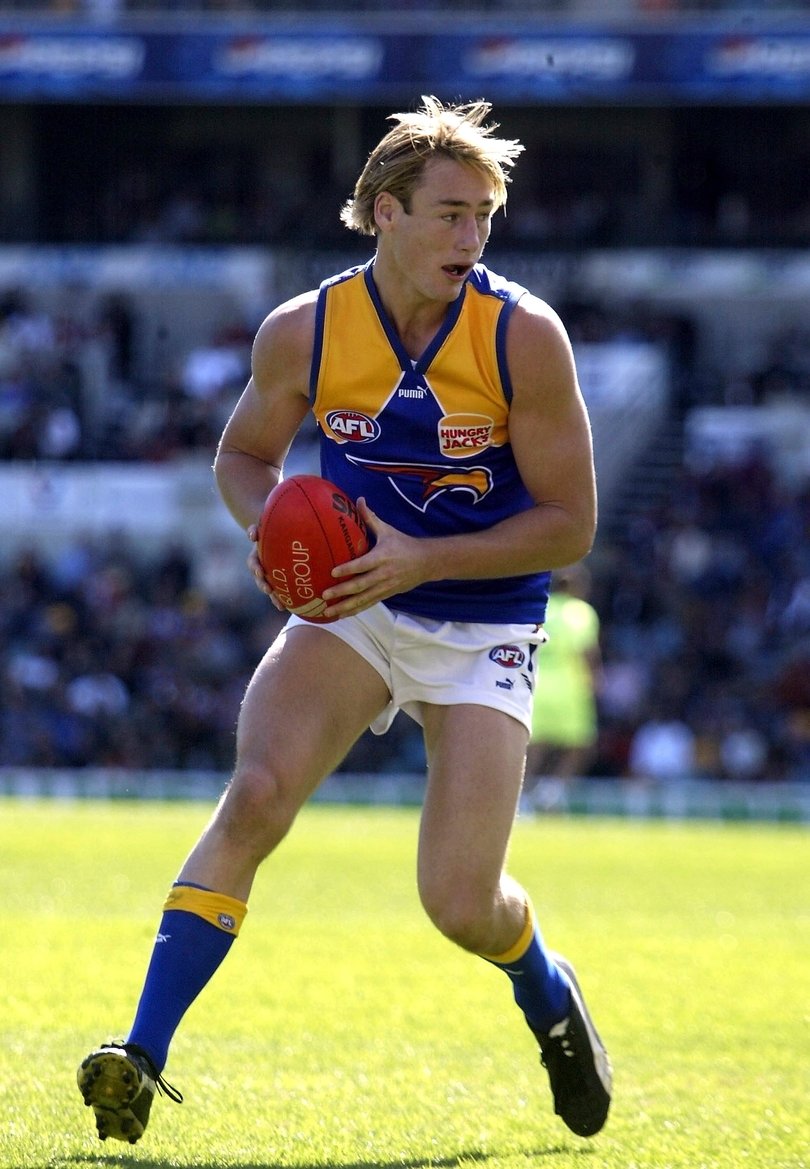
Hunter was a golden boy of the AFL in the noughties, debuting for West Coast in late 2000.
A stellar performance in the 2005 qualifying final was capped off by a match-winning goal in the 2006 grand final before his career was cruelled by knee and shoulder problems.
Ms Yacoub said Hunter moved in with her in December 2022, living with her and her two children in a house in Bunbury.
She had been using her salary as a registered nurse to support him almost the entire time, she said.
“He was working as a truck driver, running freight between Bunbury and Perth, and he would chip in a couple of hundred dollars every week or usually every fortnight to help out with rent but that was it,” she said.
“The rest of his money went on drugs. It had always been that way. He had been earning good money when he was playing AFL and had bought some houses but he lost those.
“He’d had a pretty successful pool maintenance business but he lost clients because he was so erratic so that ended up not working out.
“His family had given him money a few times, but they refused to step in to stop him going bankrupt, which I completely understand, because he had let them down so many times before.
“They had tried to get him into rehab but he would just run. He couldn’t help himself, drugs had been part of his life for so long.”
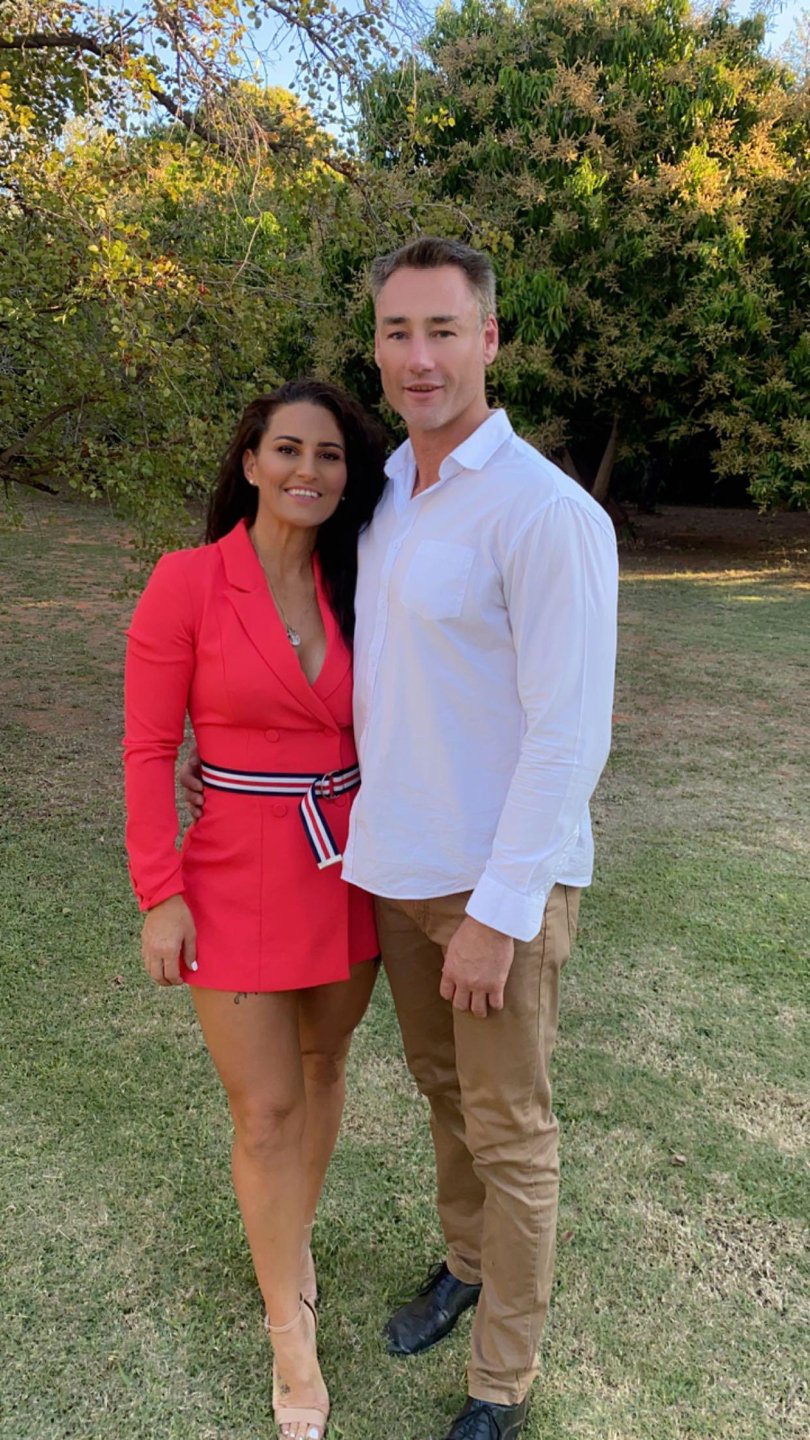
Ms Yacoub said Hunter told her he had been using while playing football, evading drug testers by shaving his head so they couldn’t perform hair follicle tests.
The drug use, predominantly meth, got worse after his life lost direction after injuries forced his retirement from the AFL in 2009.
“In the last couple of years it was clear he didn’t know how to be the person he had become,” Ms Yacoub said.
“Even when he was playing for South Bunbury he would treat it like the AFL. He would weigh himself relentlessly, on game day up to eight times.
“He would be calculating how much fluid he needed to lose to make weight and then how long it would take to replenish that fluid.
“He was using steroids and any supplement he could find.”
Ms Yacoub said Hunter was using a class of drug known as selective androgen receptor modulators, or SARMS, which promote muscle and bone growth. He was also taking the fat-burning drug clenbuterol.
“He didn’t want to age,” she said. “He would try anything to stay young. He wanted to be that person in the 2006 grand final.”
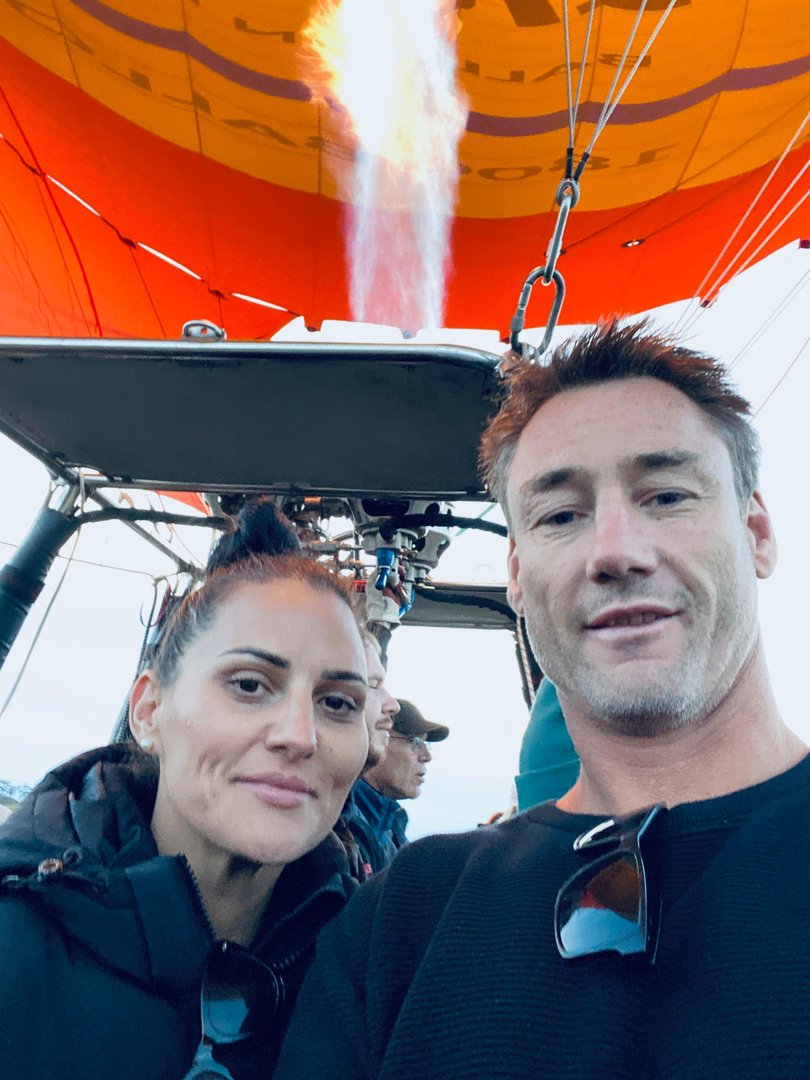
Hunter found that in his 40s his recovery from drug and booze benders was taking longer and longer.
“He would spend two or three days in bed after he had been out,” Ms Yacoub said. “He just couldn’t recover like he did when he was at the Eagles.”
Ms Yacoub, who has worked as a nurse for the past six years, suspects he had taken meth the day he died on February 4.
“I had just come back from Bali with my children,” she recalled.
“We had an argument before I flew out about how he needed to change his life because it was just too hard for me and the kids.
I was screaming ‘what have you done, what have you done’. I lifted his head up and I screamed at him to open his eyes. I kept asking what he had done so I knew what I was dealing with.
“He was at work when we got home and he went straight to football training after that.
“He got home about 8.30pm. He had a shower and talked to the kids about their holiday. The kids had showers then the youngest went to bed and oldest soon after that.
“Adam and I went into our bedroom and we had a conversation about how I couldn’t have things keep on the way they were.
“He said ‘I really want to make things work’. He promised this would be our year. We had a rent inspection the next day and I was making sure the house was clean and then I was putting contact on some school books for one of the kids because the new school year was starting.
“I heard a noise. I went to the bedroom and he was on the floor. There was a little bit of foam coming out of his mouth and I thought he had overdosed.
“I was screaming ‘what have you done, what have you done’. I lifted his head up and I screamed at him to open his eyes. I kept asking what he had done so I knew what I was dealing with.
“He opened his eyes. I said I was calling the ambulance and he shook his head because he had always said he never wanted to wind up in hospital if something went wrong.
“I said ‘I don’t care, I need help because I don’t know what you have done’. I asked him to lift his arms and his legs. He had no motor response, no verbal response.
“My eldest was on the phone to the ambulance. I didn’t stop CPR. My son said Adam was turning blue. I knew he had gone. He had turned really blue. And then he turned blood-shot purple.”
Ms Yacoub said the experience made her question her career as a nurse.
“I was asking myself if I couldn’t save him, how can I be expected to save someone else? I have beaten myself up about that night for a long time.”
Ms Yacoub’s previously close relationship with the Hunter family also soured in the aftermath of that night.
“He didn’t have a will but when he died his family made it clear to me that I would be looked after because of all the money I had spent on him over the past few years but now things have got very uncomfortable between us,” she said.
Ms Yacoub doesn’t know how much superannuation Hunter had accrued and is unsure whether he had life insurance.
She said she gave him a weekly allowance from her own pay packet when he lived with her and had taken out a $40,000 loan to pay his legal bills.
“I don’t want his things,” she said.
“There isn’t much there. We’re talking about an old Toyota Prado and a rusty old bait fridge. He sold most of his sporting memorabilia for drugs but there are five items of that he never wanted to sell which are still in the shed. But there’s not much else.”
Hunter’s family declined to comment about the situation.
Originally published as Adam Hunter’s partner Latisha Yacoub opens up on West Coast Eagles star’s final moments


